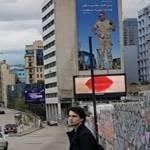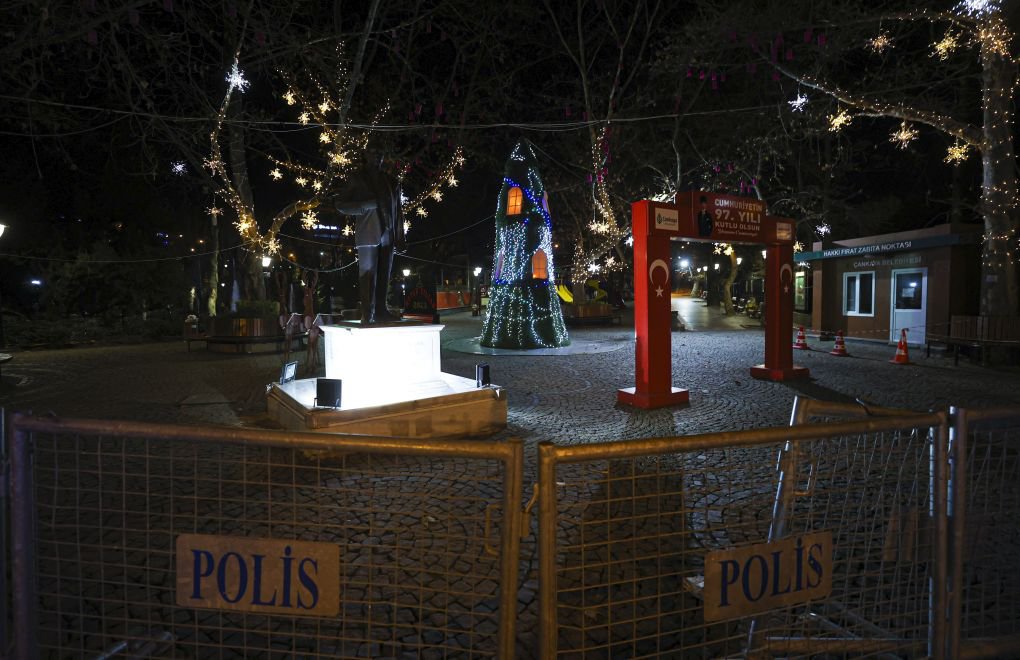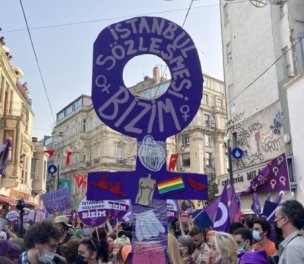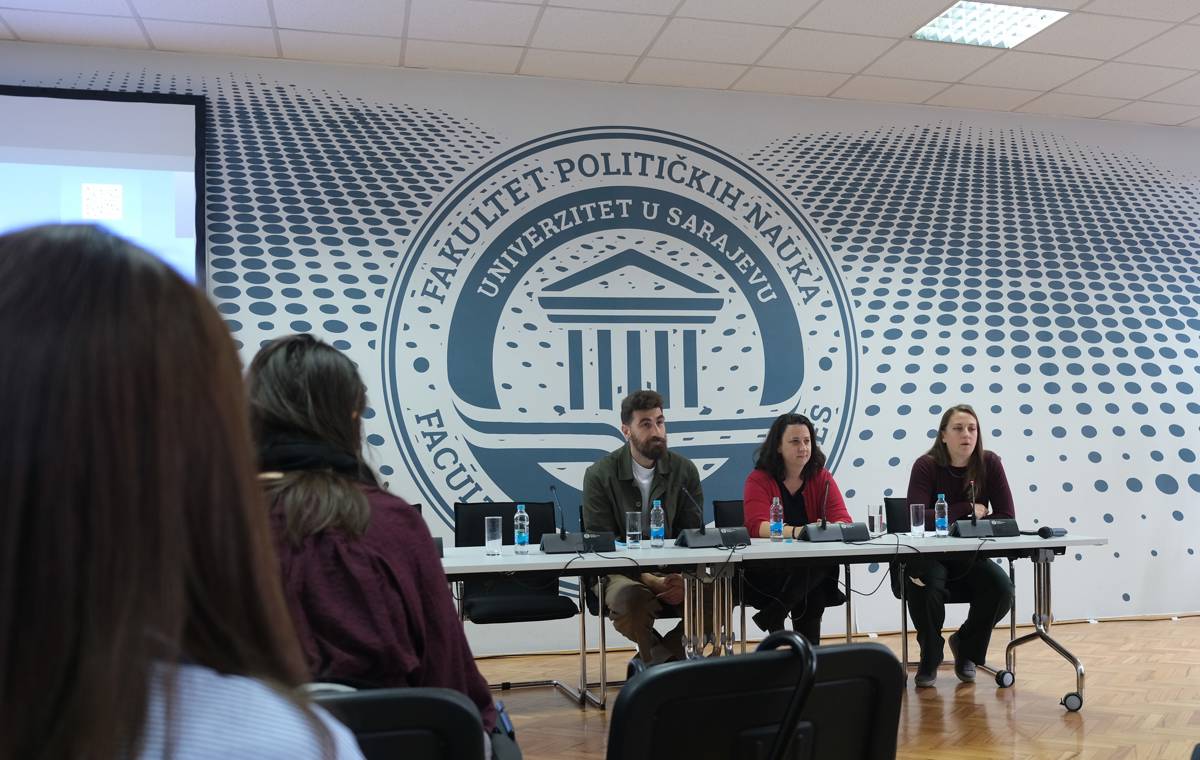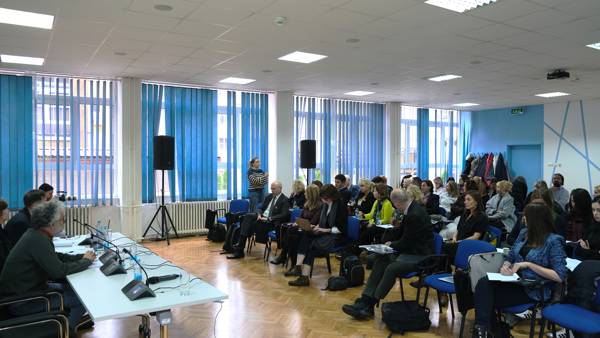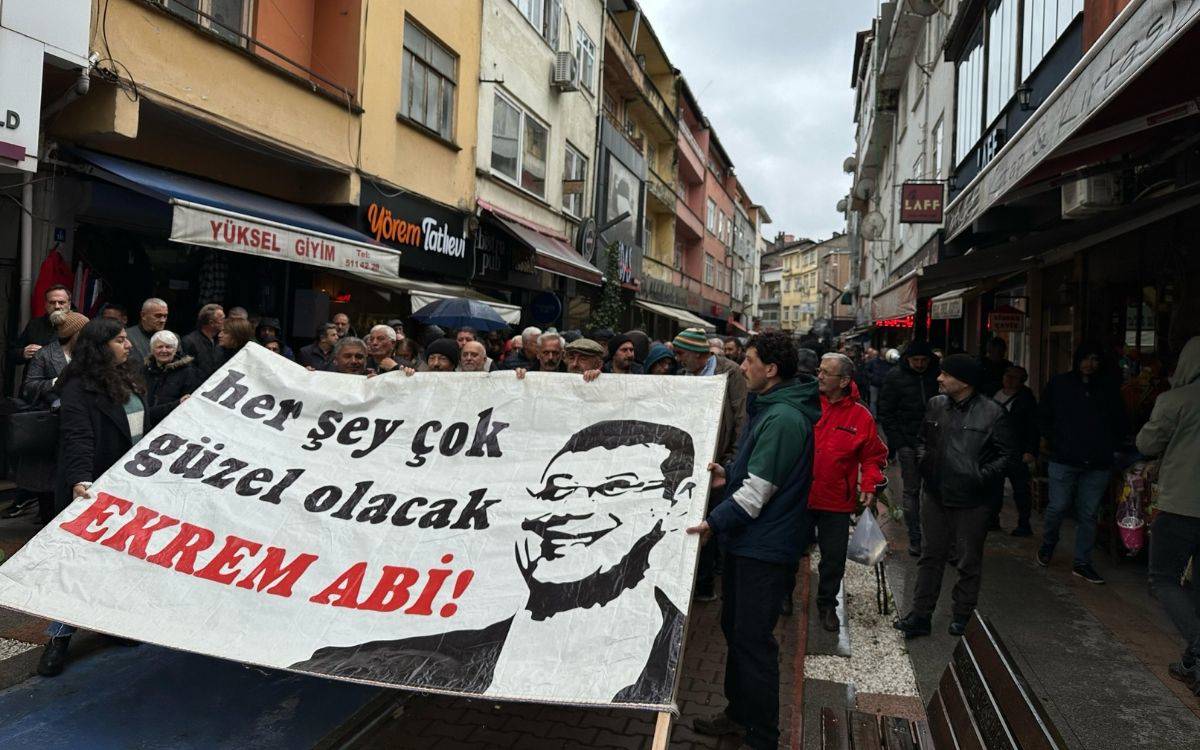An empty Kızılay square ahead of the New Year's Eve in Ankara, the capital. (Photo: AA)
At the end of a bleak year, we are taking a look at the most important events from the coronavirus pandemic to the issues about rights and freedoms.
Managing the perception rather than the pandemic
In the first few months after Turkey's first coronavirus case was confirmed on March 11, things didn't seem too bad, especially compared to some European countries where doctors had to choose between patients.
Holding press conferences every day to announce daily figures and inform the public about the course of the outbreak, Fahrettin Koca, the minister of health, managed to gain the trust of both supporters and critics of the government, which was unusual in a highly polarized political environment.
However, it didn't take health workers' organizations too long to cast doubt on the accuracy of the limited data released by the ministry.
As early as April, the Turkish Medical Association (TTB) claimed that the ministry was manipulating the figures by excluding the cases and deaths without a positive PCR test whereas many people received Covid treatment based on clinical findings even though they didn't test positive for the virus.
CLICK - Does Turkey Underreport Coronavirus Deaths? Here is What We Know
CLICK - TTB: Doctor's Cause of Death Recorded as 'Pneumonia' Despite Getting Covid-19 Treatment
Medical groups also repeatedly called on the ministry to release more detailed information that includes demographic and geographic data.
At the time when the country was experiencing the first peak period of the outbreak, the average number of daily cases was below 4,000, about four to five times lower than the hardest-hit countries in Europe.
The government was also criticized for not putting sufficient restrictions in place due to economic concerns as it avoided imposing a full lockdown and opted for limited measures such as weekend curfews in larger cities and restricting the youth and the elderly from going out.
Yet the number of daily cases started to reduce significantly in late April.
The official figures weren't worrying after the government took a series of reopening steps, including reopening cafes, restaurants, parks, beaches, malls, tourist facilities and so on, at the start of June. The number of average daily new cases in the summer months was slightly over 1,000.
In August, medical organizations started to report overwhelming hospitals and intensive care services, especially in smaller cities. Whereas about half of the cases were in İstanbul, which apparently had enough medical facilities to tackle the outbreak, in the peak period, the disease spread all over the country with the lift of intercity travel bans as part of the reopening.
CLICK - Covid-19: Turkey stops announcing number of intensive care patients after sharp increase
In late September, it became harder for the government to maintain that its reporting was accurate as figures announced by medical chambers for some provinces were sometimes higher than the ministry's numbers for the entire country.
After an opposition lawmaker revealed a leaked document from the ministry that showed 20 times more cases than the official figures, Minister Koca admitted on September 30 that Turkey was excluding asymptomatic cases from its daily count and announcing the number of what it called "patients."
The ministry started disclosing the number of all cases on November 25 when it announced 3,911 "patients" and 28,351 cases for that day.
Even before the disclosure of the number of all cases, medical organizations and opposition politicians were calling on the government to declare a full lockdown as they observed the pandemic was worsening.
Prof. Şebnem Korur-Fincancı, the head of the Turkish Medical Association, said on December 1 that the government was "managing the perception rather than the pandemic itself."
As medical groups reported that hospitals had to set up makeshift intensive care units in emergency services and corridors, the İstanbul Metropolitan Municipality began publishing the number of deaths caused by an "infectious disease" in the city in mid-November. The municipality's mortality figures for İstanbul were similar to the ministry figures for the entire country.
When asked by reporters about the municipality figures on December 9, Koca said that the ministry was reporting only the deaths with a positive PCR test, confirming the Turkish Medical Association's claim from months ago.
Doctors suspect that Covid patients who developed other complications before losing their lives are also not included in the official death toll.
The country saw a decrease in new cases in the closing weeks of 2020 after the weekend and weeknight curfews were implemented in early December. Daily fatalities continued to increase though.
Apart from the ministry's controversial reporting, we have also covered other aspects of the pandemic, publishing interviews with workers and business owners from various sectors, health workers and women's rights defenders.
Here is a selection of our articles about the pandemic:
CLICK - Small restaurant, bar owners struggle with new restrictions: 'We are in a deadlock'
CLICK - Shop owners protest: 'We don't want to die or go bankrupt'
CLICK - Those Who Fit Their Lives into Home and Those Who Have to Fit Their Lives into Work
CLICK - Although Stores Closed due to Pandemic, Many Workers Continue Working in Risky Conditions
CLICK - Beyoğlu in the Days of Corona: Shopkeepers are Worried, Cats are Lonely
CLICK - Waste Pickers: We Cannot Make Ends Meet Only with Food Aid
The government's tightening grip on... almost everything
This year was particularly difficult for rights defenders, journalists critical of the government and opposition-led municipalities.
In addition to daily insults and threats by government officials and cases filed against them, mostly on the charges of "terrorism" and "insulting the president," the parliament passed several controversial laws that threaten rights and freedoms.
The 'covert amnesty law'
The first one was a criminal enforcement law officially aimed at reducing the prison population during the pandemic but was criticized by the opposition and rights defenders as a selective amnesty law excluding political prisoners.
After the parliament ratified the law, about 90,000 prisoners were released from prison. Journalists, politicians and lawyers who were sent behind bars on "terrorism" charges continued to stay in prison.
Among the released was Alaattin Çakıcı, a former convict of organized crime who is known for his close ties to the government ally Nationalist Movement Party (MHP). Çakıcı later threatened Kemal Kılıçdaroğlu, the head of the main opposition Republican People's Party (CHP), with death. MHP Chair Devlet Bahçeli publicly backed Çakıcı after his threats, calling him a "comrade."
The Constitutional Court rejected an appeal against the law by the CHP. Yet the top court judges who expressed a dissenting opinion concurred that the law had the characteristics of a "special amnesty/pardon" and, that being the case, a qualified majority was needed to implement it.
CLICK - Ruling coalition determined to exclude political prisoners from the Covid-19 "amnesty"
CLICK - Release of perpetrators of male violence due to pandemic leaves women anxious
CLICK - Criminal Enforcement Law Creates 'Isolation within Isolation'
CLICK - Crimes Committed by Recently Released Convicts on Parliamentary Agenda
Multiple bar associations
In July, deputies from the ruling Justice and Development Party (AKP) and MHP drafted a bill allowing multiple bar associations in the three largest cities, Ankara, the capital, İstanbul and İzmir.
The bill faced serious opposition from bar associations as lawyers from all around the country marched to Ankara, only to meet with a violent police response.
The law was ratified in mid-July and the Constitutional Court rejected an appeal in October.
While a second bar was founded in İstanbul and Ankara, İzmir still has a single bar association.
CLICK - 'It will start with bar associations and affect other professional chambers as well'
CLICK - 'If there are multiple bar associations, bars will be politicized'
CLICK - 'If Constitutional Court fails to stop its execution, it will deny its own raison d'être'
The social media law
On July 29, the parliament passed a law requiring social media platforms that have more than one million daily hits to appoint a legal representative and store user data in Turkey.
All popular social media platforms, including YouTube, Facebook, Instagram, Twitter and Tiktok, are now obliged to comply with the law, which came into force on October 1. If they fail to do so, they will face gradual sanctions, including monetary penalties, advertisement bands and bandwidth throttling up to 90 percent.
So far, only YouTube has agreed to fulfill the requirements of the law while the other companies have been fined and are facing further sanctions.
Freedom of expression groups have criticized the law, saying that it would violate free expression and users' privacy.
CLICK - 'YouTube precedent threatens free expression,' warn rights organizations
CLICK - Turkey's new social media bill aimed at 'silencing dissenting voices
CLICK - 'Social media platforms should not accept Turkey's new social media law'
The NGO law
In the closing stages of 2020, the parliament passed another controversial law, which enables the Ministry of Interior to dismiss NGO executives who are prosecuted on "terrorism" charges and halt the activities of NGOs.
The law will effectively allow the government to interfere with the affairs of any association or foundation, given the widespread use of "terrorism" charges against journalists, rights defenders and politicians.
Also, the ministry will be able to carry out annual inspections on associations after "risk assessments," which could enable the government to repress the groups that it considers "objectionable," according to rights groups.
The ministry will also be able to monitor money flow to NGOs and fine them up to 200,000 lira (~26,900 USD) for unpermitted charity collection.
The opposition is expected to bring the law to the Constitutional Court.
CLICK - HRW: 'Turkey's NGO bill threatens civil society'
CLICK - 'NGO bill will lead to closure of many associations'
CLICK - New law may have even worse consequences for pro-government NGOs, says rights group head
Most municipalities won by the HDP are run by the government
The Peoples' Democratic Party (HDP) won 65 municipalities in the mostly Kurdish-populated eastern and southern provinces of the country in the 2019 local elections.
Forty-seven of those municipalities are currently run by trustees appointed by the Ministry of Interior. The legislation allows the ministry to replace local administrators who have a "terrorism-related" investigation against them.
The government moved to dismiss the mayors of the three larger cities, Diyarbakır, Mardin and Van, less than six months after the elections. It has continued to replace city, district and town mayors since then, taking over most local administrations that the HDP won in elections. The party says four million votes cast for them are "robbed" by the government.
CLICK - CoE Local Authorities Head Warns Mayor Dismissals a 'Permanent Threat' to Democracy
CLICK - Survey: 70 Percent of People in Kurdish-Majority Cities Against Mayor Dismissals
CLICK - Dismissed Diyarbakır Mayor Mızraklı: Those who resist will have the last say
CLICK - Ayhan Bilgen: Dismissed as mayor, arrested and blocked on Twitter
Punishing independent media with fines and ad cuts
The Radio and Television Supreme Council (RTÜK), the country's regulatory body for broadcast media, and the Press Advertising Institution (BİK), whose main duty is to place public ads on newspapers, have become instruments to punish independent media outlets especially in the last few years.
The council issued an excessive amount of monetary penalties on TV outlets critical of the government in 2020 while mostly skipping complaints against pro-government ones.
Pro-government broadcasters paid a total of 400,000 lira (~53,500 USD) of fines whereas several outlets critical of the government paid 25 times more with 10 million lira (~1.33 million USD).
Several newspapers critical of the government —Cumhuriyet, Evrensel, BirGün— had their ads cut several times this year, because of their reporting.
On one occasion, Evrensel newspaper had to defend itself for publishing the remarks of an opposition lawmaker.
Most independent newspapers rely on the revenues coming from public ads amid reducing circulation of print newspapers.
CLICK - HRW: Turkey's media authority imposing punitive sanctions on critical media outlets
CLICK - Public ads of Cumhuriyet cut for 35 days over 'illegal construction in Bosphorus' report
CLICK - Presidency: Ads of Evrensel, BirGün Cut due to 'Violating Ethical Principles'
The continued imprisonment of Kavala and Demirtaş
Osman Kavala, a businessperson and a rights defender, and Selahattin Demirtaş, a former leader of the HDP, have become the symbols of unfair imprisonment with political motivations as both are still behind bars despite European Court of Human Rights (ECtHR) decisions.
Demirtaş was remanded in custody in November 2016 Kavala was put in pre-trial detention one year later. To get around rulings by the ECtHR or the Constitutional Court, courts opened new investigations to keep them behind bars.
This was the case again after an ECtHR Grand Chamber ruling for Demirtaş's immediate release on December 22 as he was indicted today in an investigation into the 2014 "Kobanê protests," which claimed more than 50 lives in Kurdish-majority regions.
CLICK - What will happen if Turkey doesn't release Demirtaş?
CLICK - Kavala: Problem is detention practices taken under political influence
CLICK - Constitutional Court rejects Osman Kavala's application
Women's rights and feminicides
Men killed at least 260 women in the first 11 months of the year, according to bianet's Male Violence Monitoring Reports. The number of women killed in feminicides was 328 in the previous year.
The report on the killing of Pınar Gültekin was our most-read article of the year.
Throughout the year, women's organizations also warned against increasing male violence under quarantine conditions.
CLICK - Male Violence Monitoring Reports
Hunger strikes and the struggle for a fair trial
Four people lost their lives on a hunger strike demanding a fair trial this year.
Helin Bölek and İbrahim Gökçek, two musicians from the Grup Yorum band, Ebru Timtik, a lawyer from the Progressive Lawyers' Association (ÇHD), and Mustafa Koçak, a political prisoner accused of being involved in the killing of a public prosecutor, died after hundreds of days of death fasts.
Aytaç Ünsal, who also went on a death fast with Timtik, ended his strike and accepted treatment after a court ordered his release from prison.
All five hunger strikers received heavy sentences based solely on witness statements.
CLICK - Lawyer Ebru Timtik dies on 238th day of death fast
CLICK - Mustafa Koçak Dies on 297th Day of Death Fast
CLICK - Lawyer Aytaç Ünsal ends death fast, accepts treatment
CLICK - Death Fasting Grup Yorum Member Helin Bölek Loses Her Life
CLICK - Grup Yorum Band Member İbrahim Gökçek Loses His Life
(VK)




